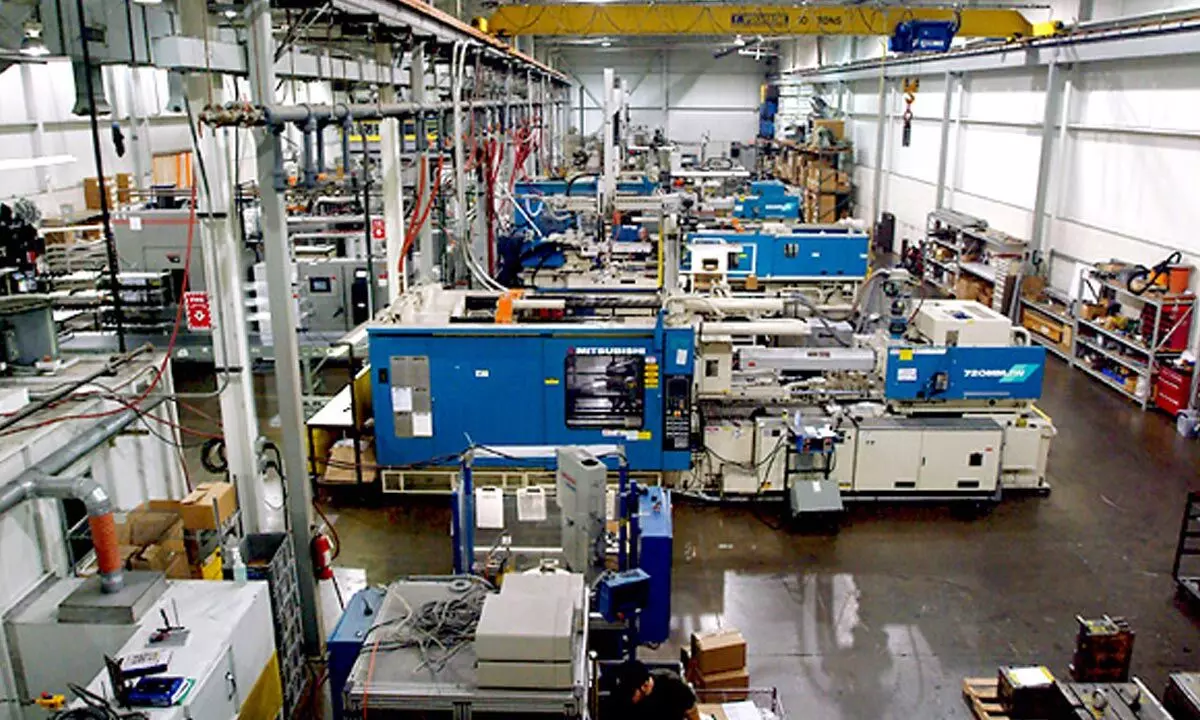Plastic industry needs govt's push to become globally competitive one
With yet another Union Budget round the corner, the Indian plastic industry is looking forward to some measures and moves that would enable India to emerge as the global sourcing hub for permissible plastic.
image for illustrative purpose

With yet another Union Budget round the corner, the Indian plastic industry is looking forward to some measures and moves that would enable India to emerge as the global sourcing hub for permissible plastic. The Indian plastic industry is estimated to be reaching $5 trillion in 2025 and the industry has set further ambitious target of reaching $25 trillion by 2045. In order to reach there, the Centre must ensure overall growth and development of the entire plastic industry - from raw materials and converter to machinery manufacturers. The industry, on its parts, is all for the Make in India and Aatmanirbhar Bharat initiatives.
However, the Centre, on its parts, will also have to ensure that the roadblocks to the growth and development of the industry are removed and the Indian plastic industry becomes globally competitive. That's not a tall order. But that's not an easy task either. For instance, the import duty on polymer at present is very high. It should be between 5-7.5 per cent. Mind you that India does not produce enough polymer and import is inevitable. Import duty on polymer needs to be lowered to make the Indian plastic industry more competitive. Similarly, custom duty on the finished plastic product should be a minimum of 20 per cent or more to support the domestic plastic processing industry.
One has to keep in mind that the Modi government is focusing on renewable energy, and this presents an opportunity for the plastic industry. The plastic industry can play an important role in manufacturing EVA (Ethylene Vinyl Acetate) and back sheets. However, at present nearly 90 per cent of the components for solar panels and windmills are imported and the products are only assembled in India. To encourage the local manufacturers, the custom duty on the import of components like EVA, back sheet, metal frame, solar glass etc, should be at least 20 per cent.
Meanwhile, Plastindia Foundation, the apex body of the major association, organizations, and institutions connected with the plastics industry, on its parts, has its own set of demands, which it has submitted before the Union Finance Minister. The apex body demands that uninterrupted power be made available at less than Rs 5 per unit. India has a high electricity rate and power fluctuation is also very high. This proposed rate is at par with neighbouring countries that makes uninterrupted power available to industries at a low cost. Then India should have a free labour law, but the wages should not be so high that it makes the manufacturing industry globally uncompetitive. Labour law should come under the purview of the Central government and wages across the country – in tier-1, tier-2 and tier-3 cities, should be uniform.
GST is another sore point and the industry is of the view that GST should not be higher than 12 per cent across product categories. Easy finance at reasonable interest rates from both banks and NBFCs should also be made available to the industry.

